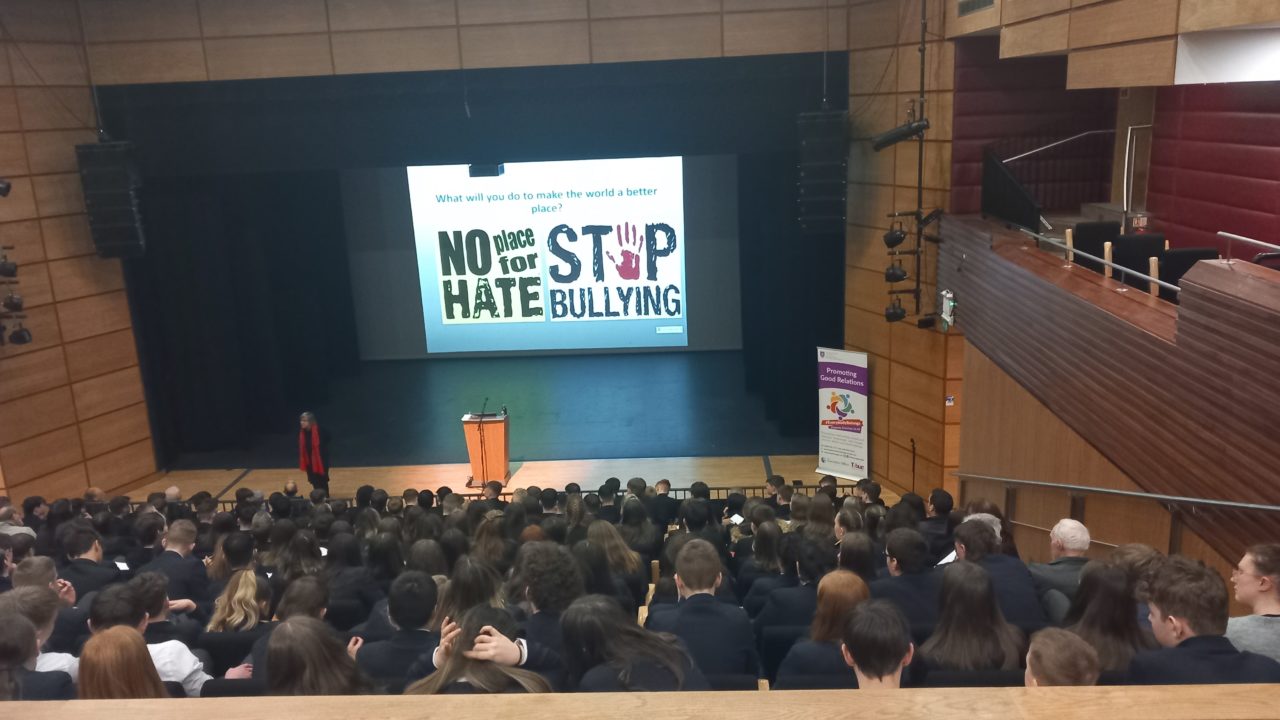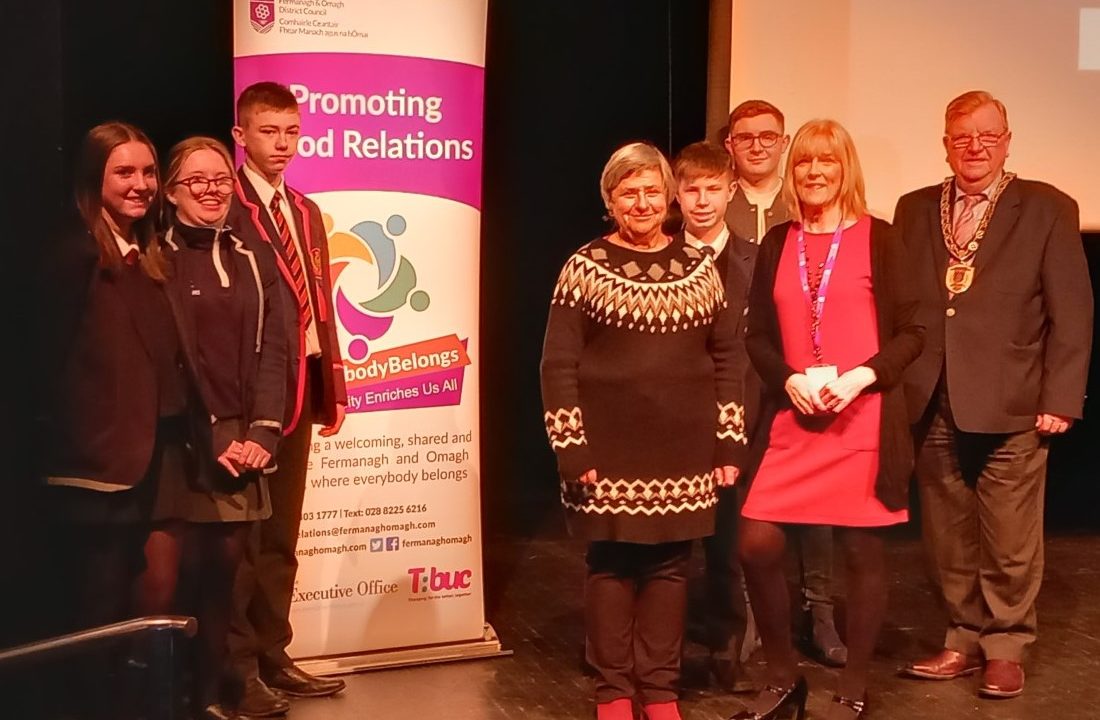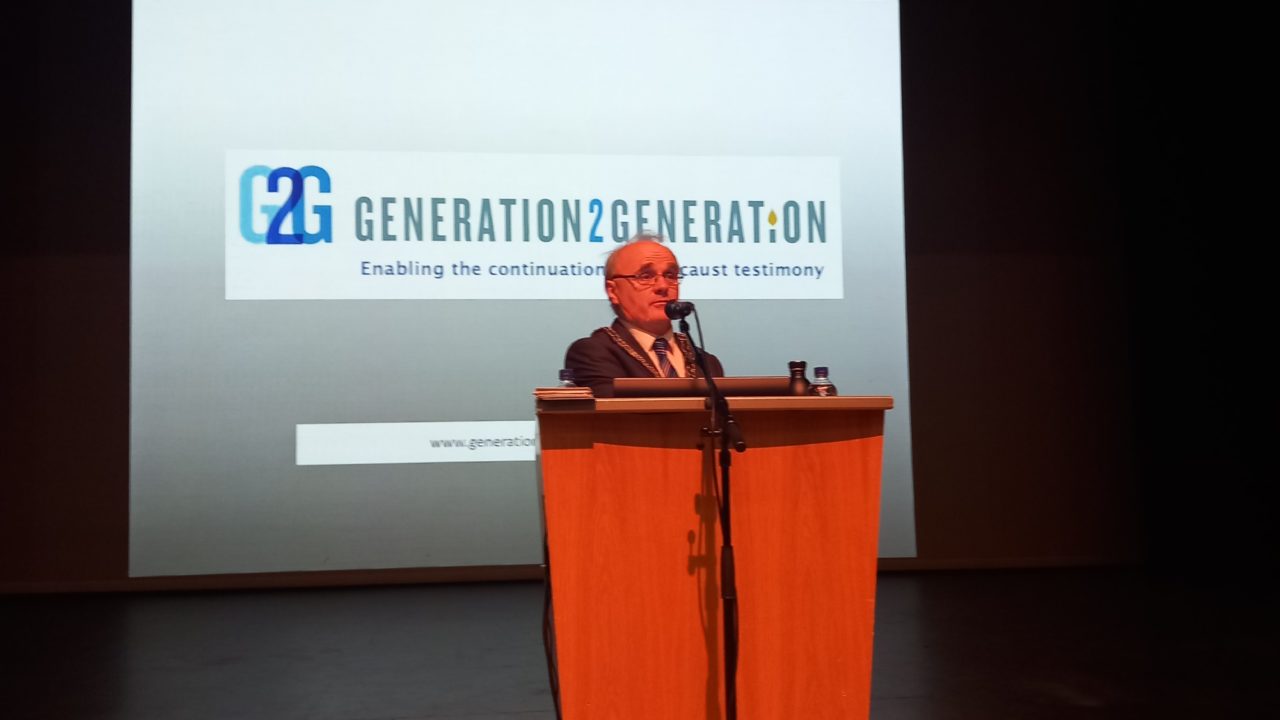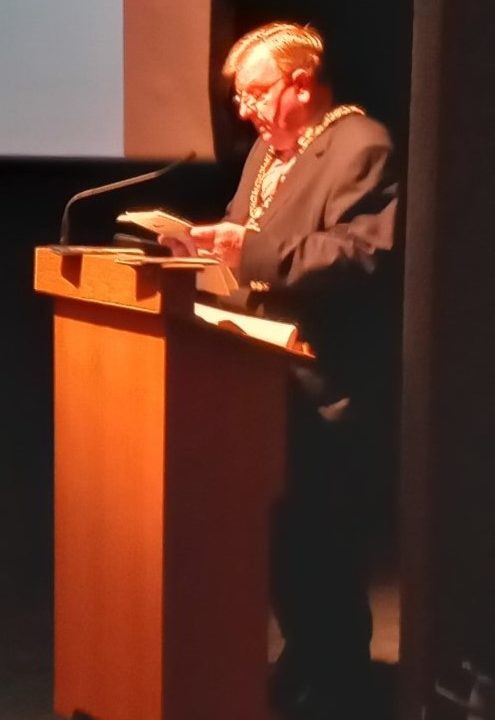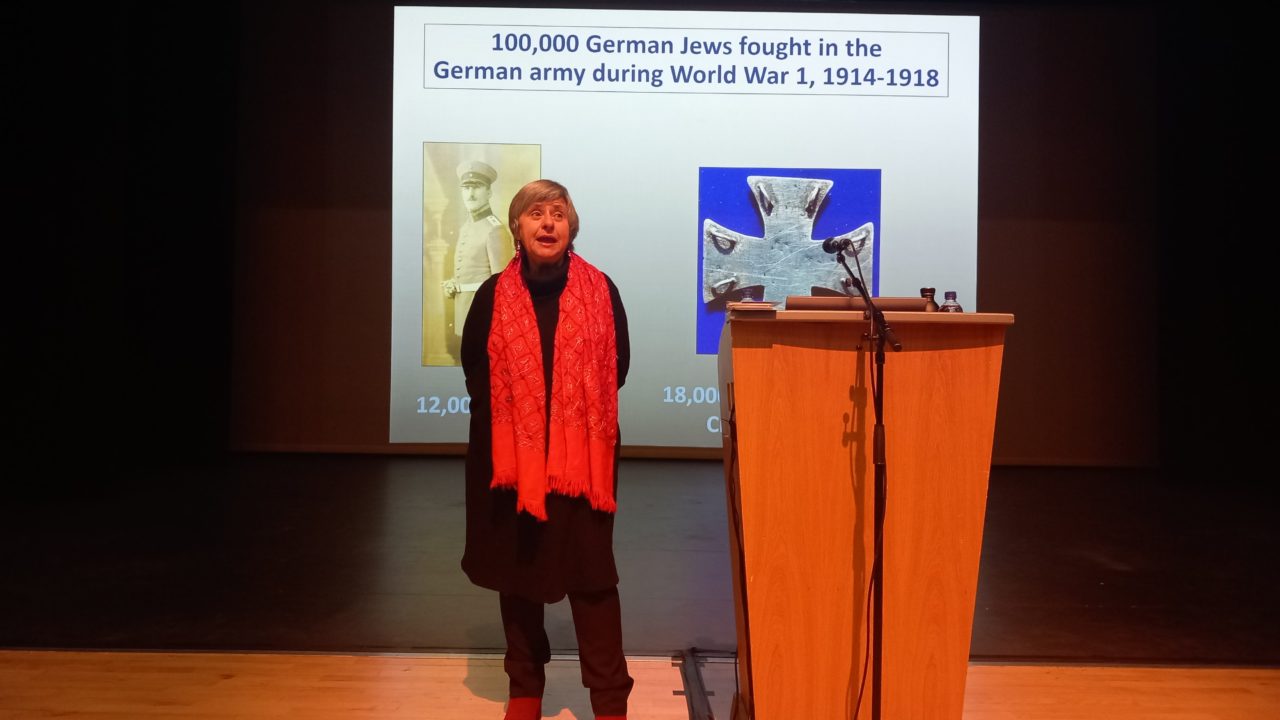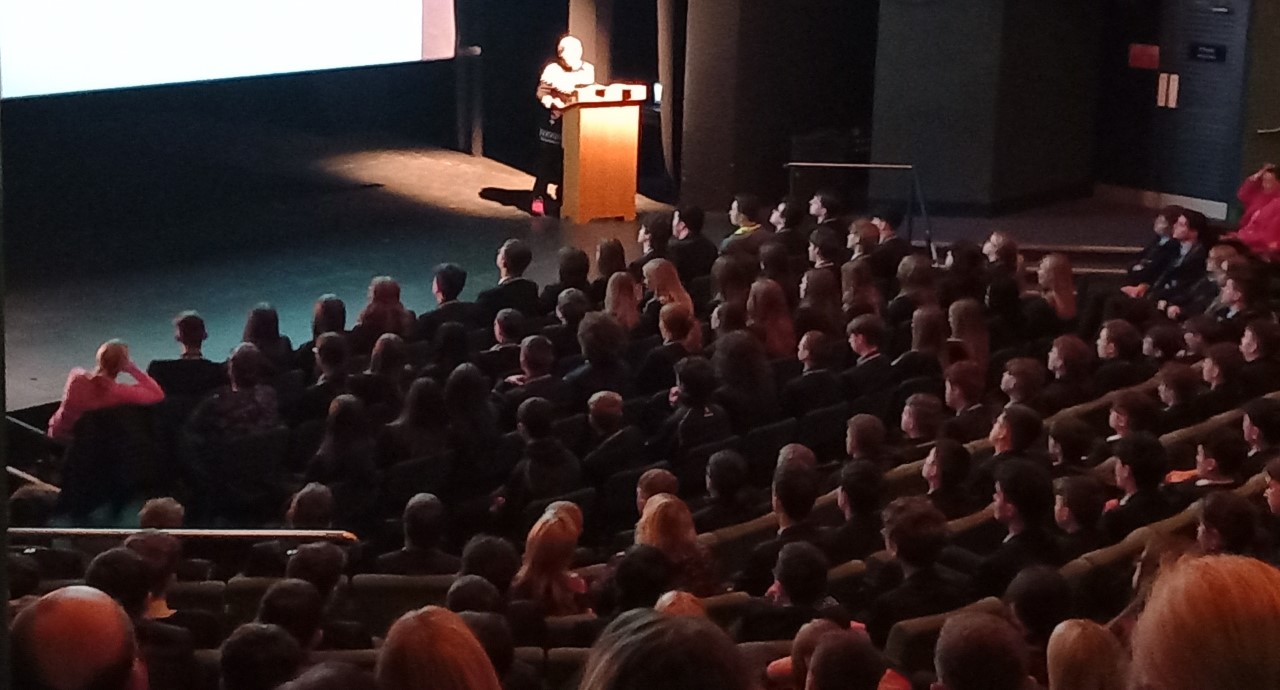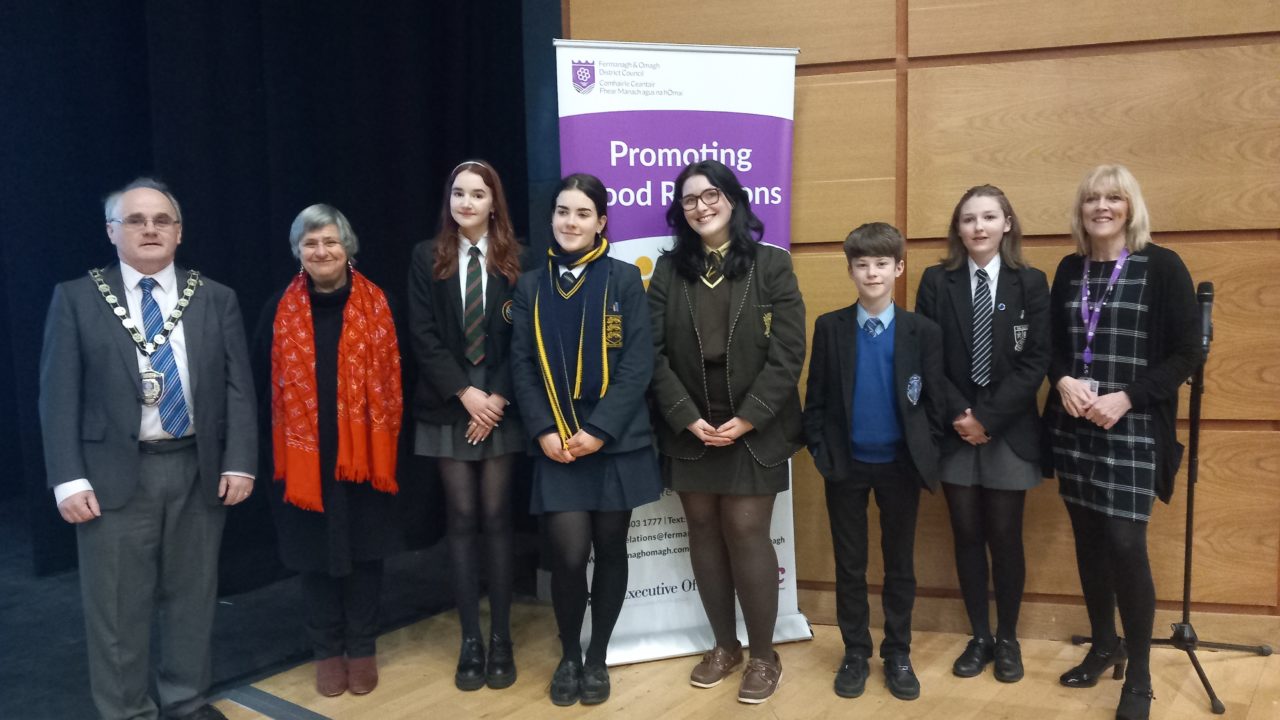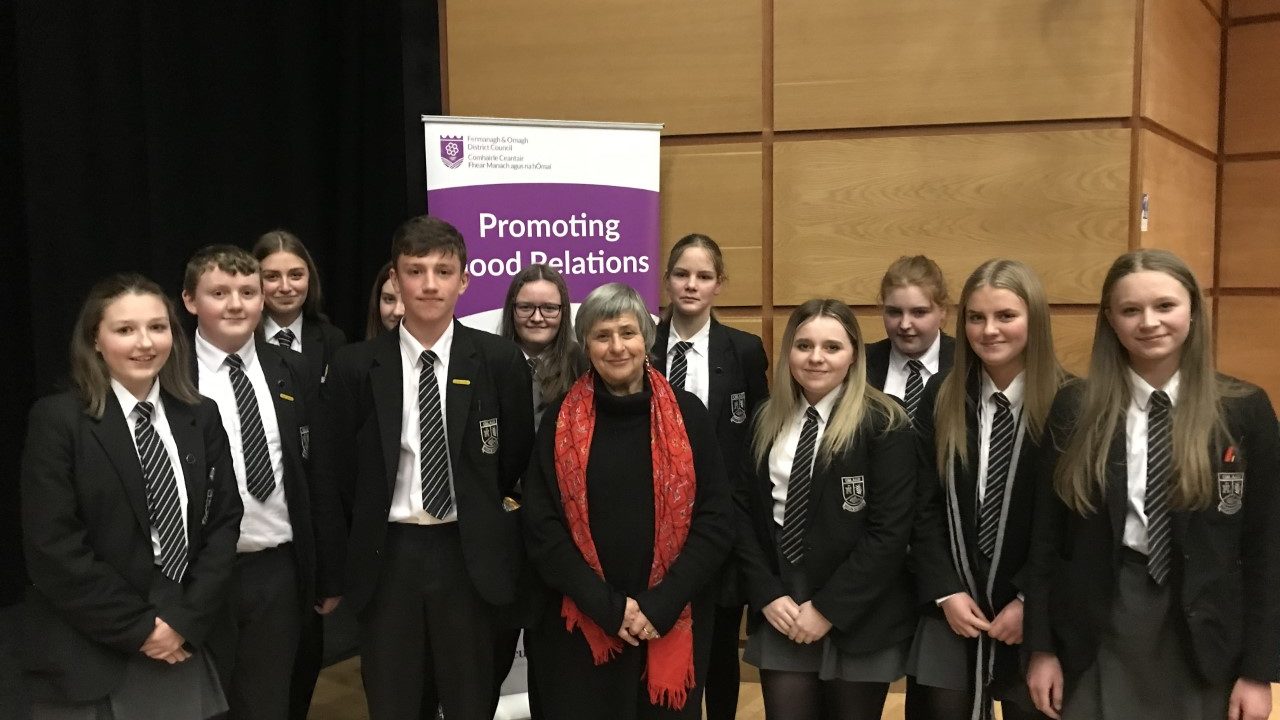Holocaust Memorial Day 2023
Holocaust Talks
To mark Holocaust Memorial Day, Fermanagh and Omagh District Council hosted a speaker, Lesley Urbach, from an organisation called Generation 2 Generation to speak in the Strule Arts Centre on 30 January at 1.00pm and the Ardhowen on 31 January at 10.00am. The talks, were attended by a number of secondary schools in the district and members of the general public. The talks were followed by Q & A sessions where a wide ranging number of questions were asked of the speaker.
Holocaust Memorial Day is an international day that takes place on 27 January to remember the six million Jews murdered during the Holocaust, alongside the millions of other people killed under Nazi persecution of other groups and during more recent genocides in Cambodia, Rwanda, Bosnia and Darfur.
Generation2Generation empower second and third generation descendants to present their family histories to a wide variety of audiences through the use of survivor testimony.
Ordinary People is the theme for Holocaust Memorial Day 2023.
Genocide is facilitated by ordinary people. Ordinary people turn a blind eye, believe propaganda, join murderous regimes. And those who are persecuted, oppressed and murdered in genocide aren’t persecuted because of crimes they’ve committed – they are persecuted simply because they are ordinary people who belong to a particular group (eg, Roma, Jewish community, Tutsi).
Ordinary people were involved in all aspects of the Holocaust, Nazi persecution of other groups, and in the genocides that took place in Cambodia, Rwanda, Bosnia and Darfur. Ordinary people were perpetrators, bystanders, rescuers, witnesses – and ordinary people were victims.
In every genocide, those targeted faced limited choices – ‘choiceless choices’ (Lawrence Langer) but in every genocide the perpetrators have choices, ordinary people have choices.
Sometimes, these choices were limited too, sometimes they had to make life-threatening decisions. And ordinary people were the ones who made brave decisions to rescue, to hide or stand up. But ordinary people also made decisions to ignore what was going on around them, to be bystanders, to allow the genocide to continue.
There are also extraordinary people in every genocide, remarkable and unusual people, who went to extreme lengths to help, to rescue, to save, and in every genocide there were extraordinary people, who went to extreme depths to cause harm, to persecute, to murder.
The theme this year, though, highlights the ordinary people who let genocide happen, the ordinary people who actively perpetrated genocide, and the ordinary people who were persecuted.
The theme will also prompt us to consider how ordinary people, such as ourselves, can perhaps play a bigger part than we might imagine in challenging prejudice today.

